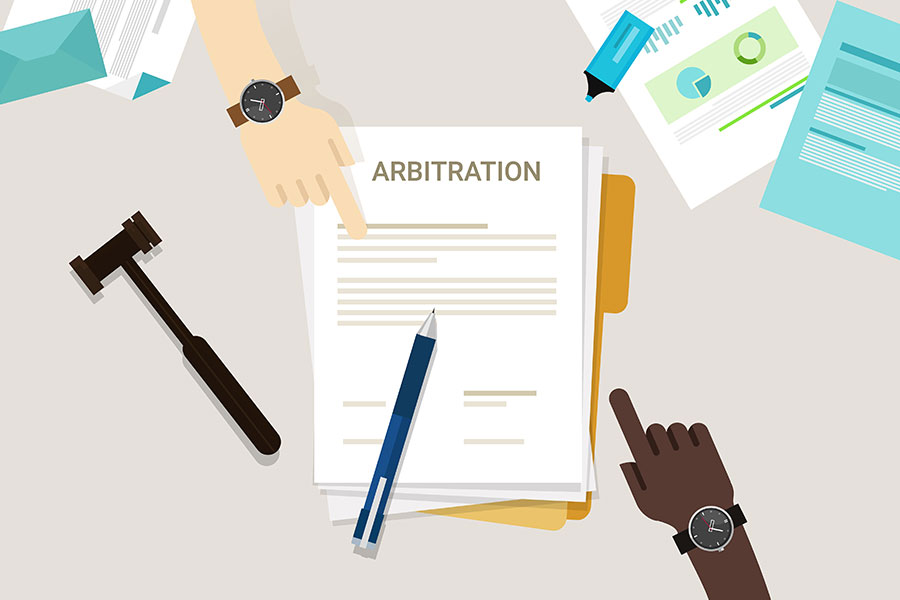The Standard of Independence and Impartiality of an Arbitrator and Conflict of Interests surrounding it

The right to independent and impartial resolution of disputes is a core tenet of an arbitration process and the need for effective standards in relation to the independence and impartiality of an arbitrator is emanated from the IBA Guidelines on Conflicts of Interest in International Arbitration (‘IBA guidelines’). The emphasis on standards of independence and impartiality of arbitrators has also been encapsulated under several other international rules and conventions like the UNCITRAL Arbitration Rules states[1], ICSID Convention and its Arbitration Rules[2], SCC Arbitration Rules[3] as well as the ICC Arbitration Rules[4]. Thus, what is imperative therefore is the accessibility of independent and impartial resolution of disputes to the parties in an arbitration.
With the advent of exceptional growth of international arbitration in recent times, the IBA recognized and analyzed the distinguished conflicts of interest surrounding the standard of independence and impartiality in international arbitrations. The IBA with an object to minimize unnecessary disclosures and withdrawals by arbitrators constituted a group of experts to compose guidelines on conflicts of interest in international arbitration[5] to be harmonize the standard of independence and impartiality in international arbitration[6].
The IBA guidelines are particularly structured in two parts respectively, the first part consists of general standards expressing the principles that should guide arbitrators, parties and arbitral institutions when deliberating over possible bias. The second part consists of a robust list of specific situations meant to serve as practical guidance.
The said list is divided into three parts namely – a Red List, an Orange List and a Green List. The red list describes situations in which an arbitrator should not accept appointment or withdraw if already appointed. However, the IBA guidelines regards certain situations described in the red list as non-waivable, such as when there is an identity between a party and the arbitrator, or the arbitrator has a significant financial interest in one of the parties or the outcome of the case. On the other hand, the orange list is a non-exhaustive enumeration of specific situations, which, in the eyes of the parties may give rise to justifiable doubts as to the impartiality or independence of the arbitrator. According to the IBA guidelines the arbitrator has a duty towards the parties to disclose situations falling under the Orange list. On account of situations enlisted under the Orange List, the parties are deemed to have accepted the arbitrator if, after disclosure, no timely objection is made. The IBA general standard provides for a limitation period of 30 days to the parties to raise objections. Such situations include previous services for one of the parties within the past three years and relationships between an arbitrator and a co-arbitrator or counsel. Lastly, the Green List describes situations under which the IBA guidelines do not recommend disclosure let alone withdrawal by the arbitrator. These situations include previously expressed legal opinions and previous services by the arbitrator’s law firm against one party in an unrelated matter without the involvement of the arbitrator. Perhaps the Green List also includes situations described in the Orange List such as previous services for one of the parties when more than three years have passed.[7]
The Government of India with an intend to maintain the pro-arbitration stance in India decided to amend the Arbitration and Conciliation Act, 1996 by introducing the Arbitration and Conciliation (Amendment) Bill, 2015 in the Parliament. The Union Cabinet chaired by the Prime Minister, had given its approval for amendments to the Arbitration and Conciliation Bill, 2015 taking into consideration the Law Commission’s recommendations in light of the general standards formulated under the IBA Guidelines laying the principles that should guide arbitrators, parties and arbitral tribunal in deliberating over issues of possible bias and suggestions received from stake holders.
In an attempt to make arbitration a preferred mode of settlement of commercial disputes and making India a hub of international commercial arbitration, amendment to Section 12[8], as per the new law makes the declaration on the part of the arbitrator about his independence and impartiality more onerous. A Fifth Schedule has been inserted by Act 3 of 2016, which lists the exhaustive grounds that would give rise to justifiable doubt to independence and impartiality of an arbitrator. Any person beyond the purview of the grounds as stipulated under the Fifth Schedule is likely to be independent and impartial in all respects. Additionally, another schedule i.e. the Seventh Schedule has been added and a provision has been inserted categorically stating that notwithstanding any prior agreement of the parties, if the arbitrator’s relationship with the parties or the counsel or the subject matter of dispute falls in any of the categories mentioned in the Seventh Schedule, the such an arbitrator is ineligible to be appointed as an arbitrator. However, subsequent to disputes having arisen, parties may by expressly entering into a written agreement waive the applicability of this provision thereby incorporating the very standard of independence and impartiality under the Act. Thus, under no circumstances it would not be possible for departmental authorities to appoint their employees or consultants as arbitrators in arbitrations.
The aforesaid amendment to section 12 of the Arbitration and Conciliation Act, 1996 makes the declaration by the arbitrator about his independence and impartiality more realistic as compared to a bare formality under the previous regime. The IBA Guidelines lead amendment to Section 12 has evolved in uplifting the standards of independence and impartiality in India. It is imperative to assert that the findings of Hon’ble High Court of Bombay in Lite Bite Foods Pvt. Ltd. v. Airports Authority of India[9] following the decision set-out by the Hon’ble Supreme Court in Perkins Eastman Architects DPC &Anr v. HSCC (India) Ltd.[10] that the scope of standards of independence and impartiality is also extended to the procedure adopted for constitution of arbitral tribunal and appointment of arbitrator. Thus, making way to purge the ills of unilateral appointments in India, especially where such appointments are often muddled in opaque processes.
[1] Article 9 of 1976 UNCITRAL Arbitration Rules and Article 11 of 2010 UNCITRAL Arbitration Rules.
[2] Article 14(1) and Article 57 of the ICSID Convention read with Article 6(2) of the ICSID Arbitration Rules.
[3] Article 14(2) and Article 15(1), SCC Arbitration Rules.
[4] Article 7 and Article 11 of ICC Arbitration Rules.
[5] Introduction to the IBA Guidelines on Conflicts of Interest in International Arbitration at Page. 3 – 4.
[6] Introduction to the IBA Guidelines on Conflicts of Interest in International Arbitration at Page. 4.
[7] Lawson, D. A., Impartiality and Independence in International Arbitration – Commentary on the 2004 IBA Guidelines on Conflicts of Interest in International Arbitration, ASA Bulletin Vol. 23, No. 1, 2005, Kluwer International 2005 at Page 35.
[8] Section 12, Arbitration and Conciliation (Amendment) Ordinance, 2015.
[9] Commercial Arbitration Application No. 495 of 2019, Bombay High Court, decided on 4 December 2019
[10] Arbitration Application No. 32 of 2019.





